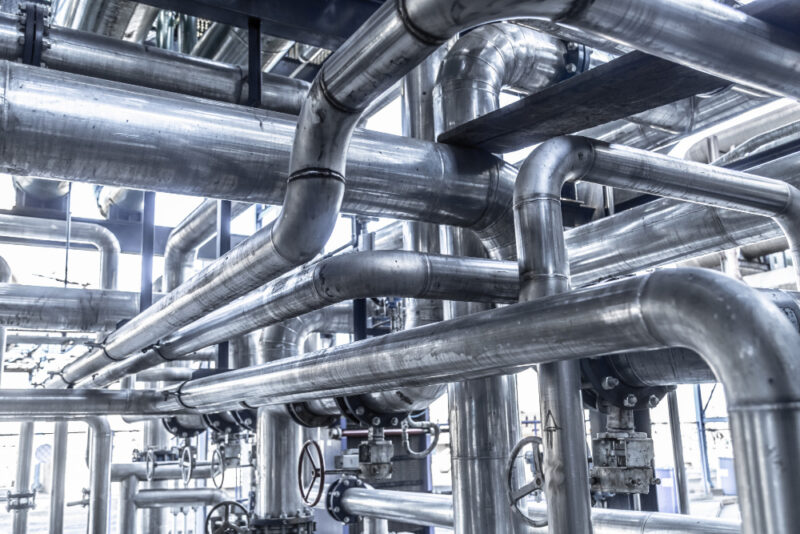Solution provider

Danish Technological Institute (DTI) is an independent and non-profit research and development institute. DTI is approved as an RTO by the Danish Minister of Higher Education and Science.
R&D Project
Energy efficiency in industry
Energy recovery from wastewater
Industrial water treatment
+4


Danish Technological Institute (DTI) is an independent and non-profit research and development institute. DTI is approved as an RTO by the Danish Minister of Higher Education and Science.
Add the case to your visit request and let us know that you are interested in visiting Denmark
In the future, less wastewater should be wasted.
Today, many companies pay wastewater treatment plants to get rid of their industrial wastewater, but often the water contains resources that can be used by the company or others.
– There is lots of value in process- and wastewater. Both directly in the form of heat energy that can be utilized and product residues that can be fed back into production or sold to a third party. Also, indirectly by adding less chemicals in cleaning. The companies, however, miss the overview of the opportunities and the technology to exploit the values. That’s what we want to change, says project manager Christian Fischer from the Danish Technological Institute.
The keyword is “upstream”
Today, water from many different processes is mixed in the same pipeline before it is sent on for treatment at the treatment plant. That is one of the reasons why many companies have not yet exploited the potential of their waste streams. Examples of wasted resources can be hot process water, cooling water, residues of the company’s products, soap, or other cleaning chemicals. It is important to capture the resources before being mixed with other products which complicates the resources extraction.
– The excess heat from a hot water pipe cannot be utilized once it has merged with cooling water, for example. And water with residues of the company’s product cannot be fed back into production if it is mixed with cleaning chemicals. Therefore, it is essential to think ‘upstream’ and early resource extraction, says chief advisor Peter Kristensen from Viegand Maagø, who together with the Danish Technological Institute is responsible for mapping and valuing companies’ product streams.
Project will find new resources in industrial wastewater
The largest MUDP project ever will show how companies can extract heat and other resources from process water. Potentially, thousands of tons of chemicals, water and energy can be recycled and reused in favor of both the environment and business.
A large consortium together with the Danish Environmental Protection Agency is now investing DKK 90 million to show how resources in wastewater can be mapped, valued, and utilized for the benefit of Danish companies’ business and the circular economy. The three-year project is called ReUse, and the aim is to implement full-scale solutions at three different companies.
Plenty of value in waste streams
Three very different manufacturing companies are participating in ReUse: Brødrene Hartmann A/S, which produces egg trays from recycled paper; Nopa Nordic A/S, a leading manufacturer of environmentally friendly cleaning and care products; and CP Kelco ApS, which produces pectin for the food industry.
The aim of the initiative is to extract at least half of a resource currently discharged from each company.
The initiative involves:
Some of Denmark’s leading technology suppliers within watertreatment and detection (Silhorko-Eurowater, Tetra Pak Filtration and Q-interline), will promote resource recycling by presenting the newest technology in the field.
Largest project ever
The Ministry of the Environment’s MUDP scheme has invested DKK 22 million in ReUse, making it the largest MUDP project ever. With a total budget of DKK 90 million, it testifies the consortium’s belief that it pays off to invest in the recovery of valuable substances in wastewater.
The project “ReUse – Recycling of resources from industrial waste streams” (2021-2023) is a collaboration between the Danish Technological Institute and the companies CP Kelco Aps, Brødrene Hartmann A/S, Nopa Nordic A/S, Aquarden Technologies ApS, Silhorko-Eurowater A/S, Tetra Pak Filtration, Q-Interline and Viegand Maagøe A/S.
At Brødrene Hartmann A/S, the project has already come a long way.
– Through ReUse, we have mapped our entire water system and identified several opportunities for recycling both water and energy. The next step is to evaluate the technologies, and we hope that we can reduce the water consumption to half when we have implemented a full-scale solution in a couple of years, explains factory director Søren Elstrøm from Brødrene Hartmann A/S.
Contributors: Silhorko-Eurowater, Aquarden Technology, Viegand Maagøe, Q-Interline, Tetra Pak Filtration, Nopa Nordic, Hartmann Brothers and CP Kelco